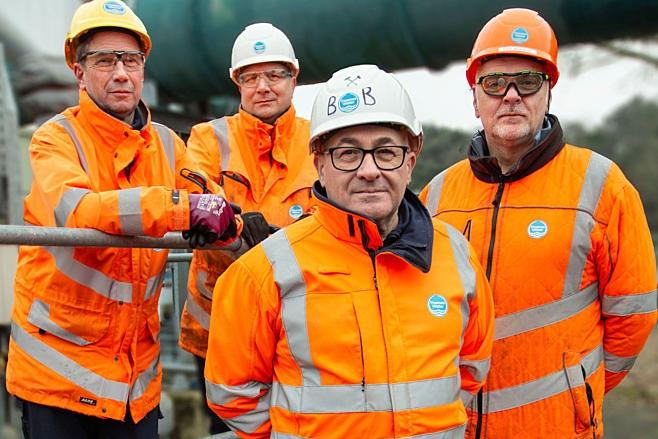
Did you know with a Digital Subscription to Lancashire Evening Post, you can get unlimited access to the website including our premium content, as well as benefiting from fewer ads, loyalty rewards and much more. Thames Water: Inside the Crisis ( BBC2 , Mon/Tues, 9pm) swapped the blood for sewage, as it took a surprisingly candid look behind the scenes at the current poo-based disaster engulfing the UK's largest water company. Captions point out that the firm, which looks after water supply and waste disposal over a huge swathe of the country – from the Cotswolds to the Essex marshes, and across the whole of London – still makes £140 million a year in profit.
Advertisement Advertisement Unfortunately, it is also – bafflingly, given it has a monopoly – £15 billion in debt. Like a weight dragging it through Joseph Bazalgette's Victorian sewers, this debt is taking £800m in interest out of the company, and means Thames Water can't invest in its creaking network of pipes, sewage works and treatment plants. In the midst of all this financial doo-doo swims a new team of executives.

New CEO Chris Weston cuts a casual figure in the office, all crumpled cords and padded gilets, but is noticeably less comfortable talking to the cameras. However, some of the other newcomers are more candid, particularly those lower down the increasingly greasy pole. Advertisement Advertisement “We're getting to where the assets don't wobble, they fail,” says chief operating officer Esther, while the euphemistically-titled 'director of waste', Tessa, is left wondering if the constant battle with a rising tide of sewage is really worth the fight.
“Is all this aggro and stress and pain really worth it?” she ponders at one point, contemplating yet more sewage outflows following last autumn's Storm Bert. And the workers on the frontline are even more downbeat. Struggling with antiquated equipment, lack of investment and battling the – very wet – consequences of climate change, they are clearly doing the best, but have been and are being failed by generations of mismanagement.
It's an eye-opening look into how disinterested shareholders, big banks and investors fixated on returns have turned what should be a cash cow into a basket case. Advertisement Advertisement Concerned only with maintaining dividends, billions have been taken out of the company, and debt has been piled into, and now politicians of all stripes are expressing surprise at the consequences. The problem is, you get the feeling that the problems are so massive, so expensive to fix, so intractable that nothing can solve them.
Not billions more in investment, not taking Thames Water back into Government control, not splitting it up among the other companies. The top management want to increase the bills – by 53 per cent – claiming that it wasn't#t mismanagement or shareholder greed which caused the problems, but “a focus on keeping bills low”. Advertisement Advertisement That's right, it's not their fault, it's ours for wanting a reliable water supply at a reasonable price.
And that's where this documentary really comes into its own. You imagine the comms team thought that allowing the cameras in would lend them some empathy, humanise the people behind the bills begging bowl, get them some positive PR. Unfortunately, thanks to the corporate speak and self-justification at HQ - and the world-weary, downtrodden staff at the frontline, determined to show how bad things really are - they only succeeded in pooing on their own doorstep.
Advertisement Advertisement And don't make the mistake of thinking this just applies to Thames. In 2023, the north west's water company, United Utilities , announced it had debt of £8.5bn, but still increased the amount it paid out to shareholders by almost 10 per cent per share.
Inside the Crisis could be about any of our big utilities, you imagine, and showed, in an intimate, engaging way, that Thames really aren't the only dump in the chalk stream, but merely the tip of a massive, disgusting fatberg..














